Staying abroad with Marissa in Nanjing
Although I am only studying Sinology as a minor subject, I have decided to go to China to stay abroad to improve my language skills and gain insight into the country’s culture. Thanks to a full scholarship from the China Scholarship Council, I could study at Nanjing Normal University for a year from September 2023 to June 2024 as a General Scholar in the Chinese Language program. During the holidays, I also took the opportunity to travel around the country.
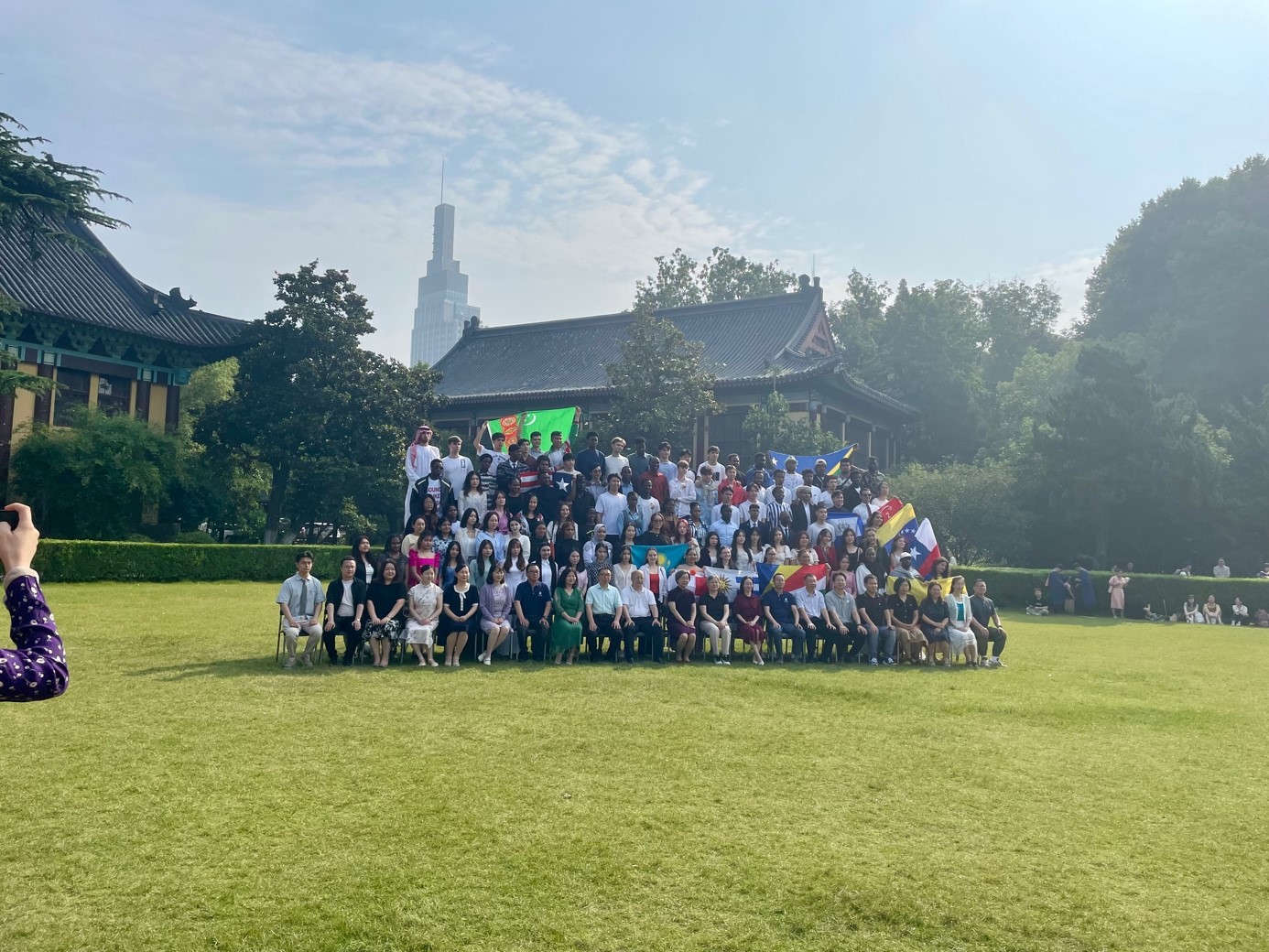
I was very happy with my choice of university. On the one hand, I had made sure beforehand that I would come to a rather small university so that I would have as little opportunity as possible to speak German or English. On the other hand, it was important to me that the living costs could be covered by the scholarship money (canteen: 9-19¥; eating out: 20-40¥; public transport: bus 2¥). Another aspect that played a role was whether the locals spoke dialect, which could lead to difficulties in understanding. In Nanjing, dialect is already spoken, but as the city has many immigrants from different provinces, it is no problem to converse in modern Chinese.
In general, I think Nanjing has something to offer as an exchange city for all those interested in history, as it was the capital of many dynasties. Even today, the central location is still very practical as you have good train connections to other cities. However, after visiting Beijing, Shanghai, and other cities, I would categorize Nanjing as a bit sleepy but with a charm of its own, that is worth discovering.
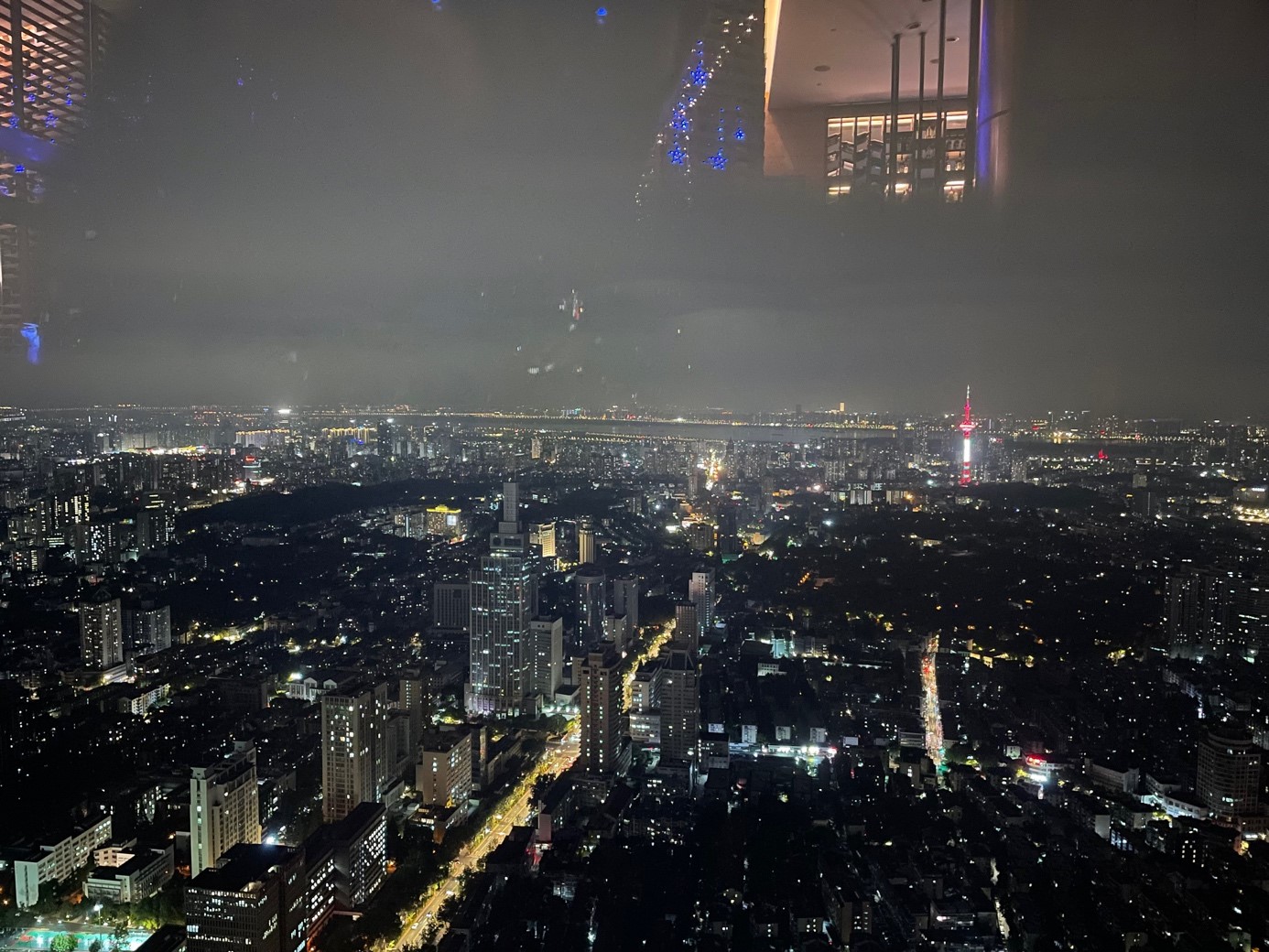
In terms of the campus, I was fortunate that all the language students stayed in the Suiyuan Campus near the city center, making everything easily accessible on foot, by underground, or by bike. For example, we only had to walk 10 minutes to the classroom. The international students did not have a curfew compared to the Chinese students because they were accommodated on the upper floors of the campus hotel and in a building next door.
As BA or MA exchange students, they always assigned us to rooms with two or three people. I was lucky that my flatmate didn’t turn up at first. Only after eight months the university assigned me a super nice flatmate from Germany who had just graduated from high school. We had a really good time together, and it was nice to get to know each other and share our different everyday experiences in the evenings. My fellow students came from various countries, such as Haiti, Colombia, El Salvador, Cameroon, Haiti, Russia, Italy, Laos, Ghana, Tajikistan, Indonesia, Comoros, etc.. In percentage terms, Europe did not have a strong representation as a continent. Many had no previous knowledge of Chinese and were preparing to study at another university after a year in China. By attending lessons, cooking in the communal kitchen, organizing excursions themselves or by the university, celebrating New Year, and interacting in the corridors or rooms, they formed very warm friendships.
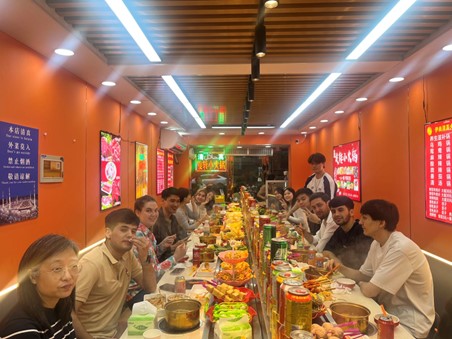
The university had four levels, each with 1-4 sub-levels. After a test to show which level we should go to, we could decide which class we were confident in. On the advice of friends, I went to the second level in a class that aimed for HSK 5, in which everyone could already speak Chinese almost fluently. Still, I only took the yufa (grammar), kouyu (speaking practice) and tingli (listening comprehension) classes. In the second semester, I also attended the optional subjects ‘Tourism,’ ‘Writing’, and ‘Reading newspapers.’ At first, I understood little in class, but over time it got better and better, and I think I learned a lot more than if I had gone to a lower-level class. That was easier for me.
Apart from the lessons, I spent as much time as possible in the city to test my Chinese in practice. Many people in Nanjing were very communicative and just as curious as I was, so there were often spontaneous opportunities to talk. Also, the characters everywhere, the bus announcements or phone calls with the Didi drivers, were enough of an incentive to continue learning to understand more. I also went to church on Sundays, where the hour-long sermon gave me an intensive listening comprehension. I made friends who invited me to their homes every weekend and showed me the city from their perspective. Among other things, we cooked Chinese, went on trips in their car in the neighborhood, and recently, they even visited me in Switzerland.
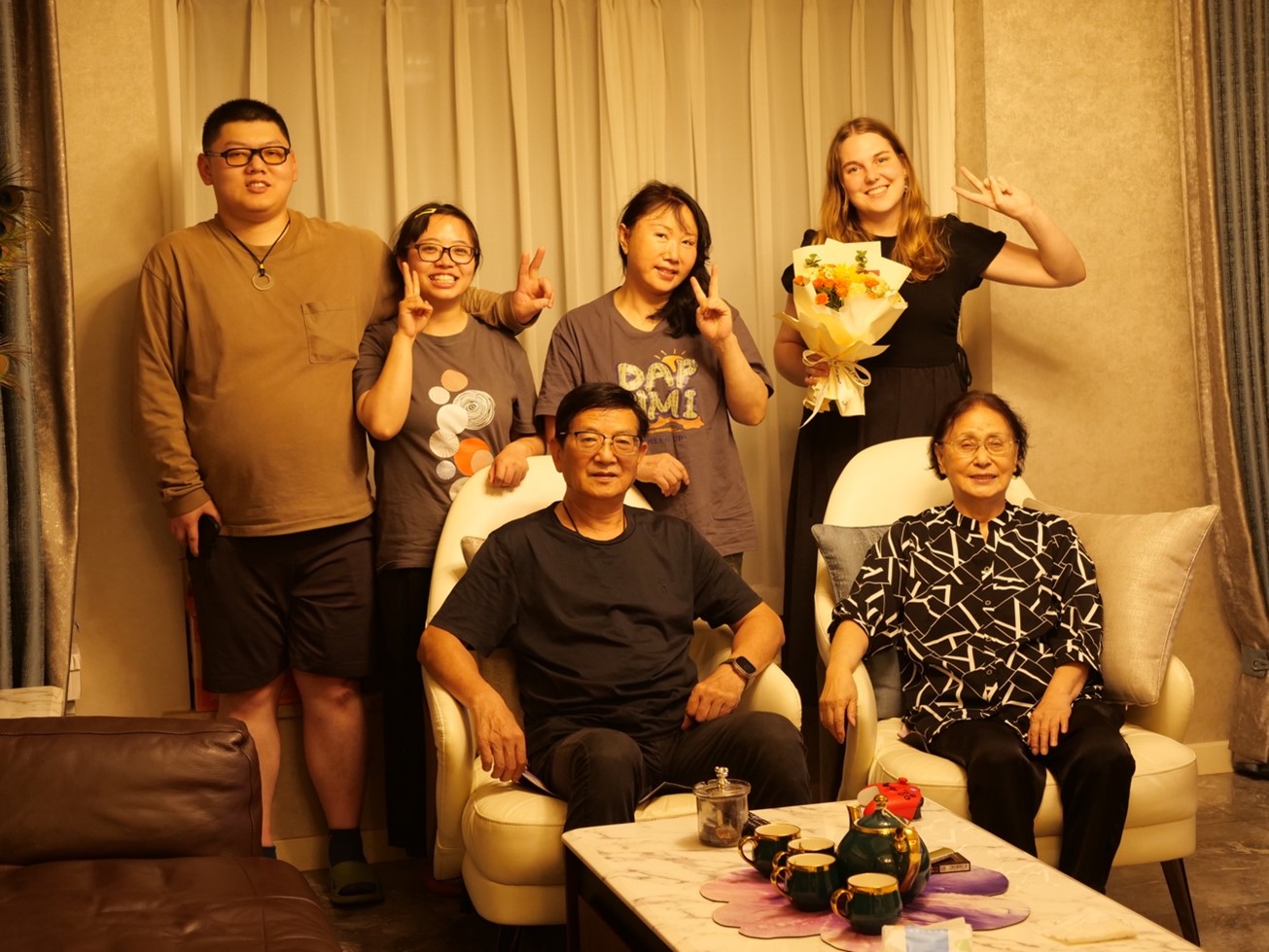
Traveling was also an excellent opportunity to immerse myself in the culture, test my Chinese, and provide great motivation to keep going. Many taxi drivers were happy to have a chat and were glad to tell me something about their city. Even on the train, there were always pleasant conversations with fellow travelers, selfies, and sometimes even joint excursions. For instance, I hiked with a spontaneous group for a whole day, or people invited me out for a meal. I also learned to appreciate youth hostels and shared rooms because they were always a great place to meet people. I remember the children in a Tibetan village in Qinghai Province, who were more than happy to show us their home as ‘guides,’ and the owners of our accommodation during Chinese New Year, who invited my friend, me, and all the other guests to the general festivities.
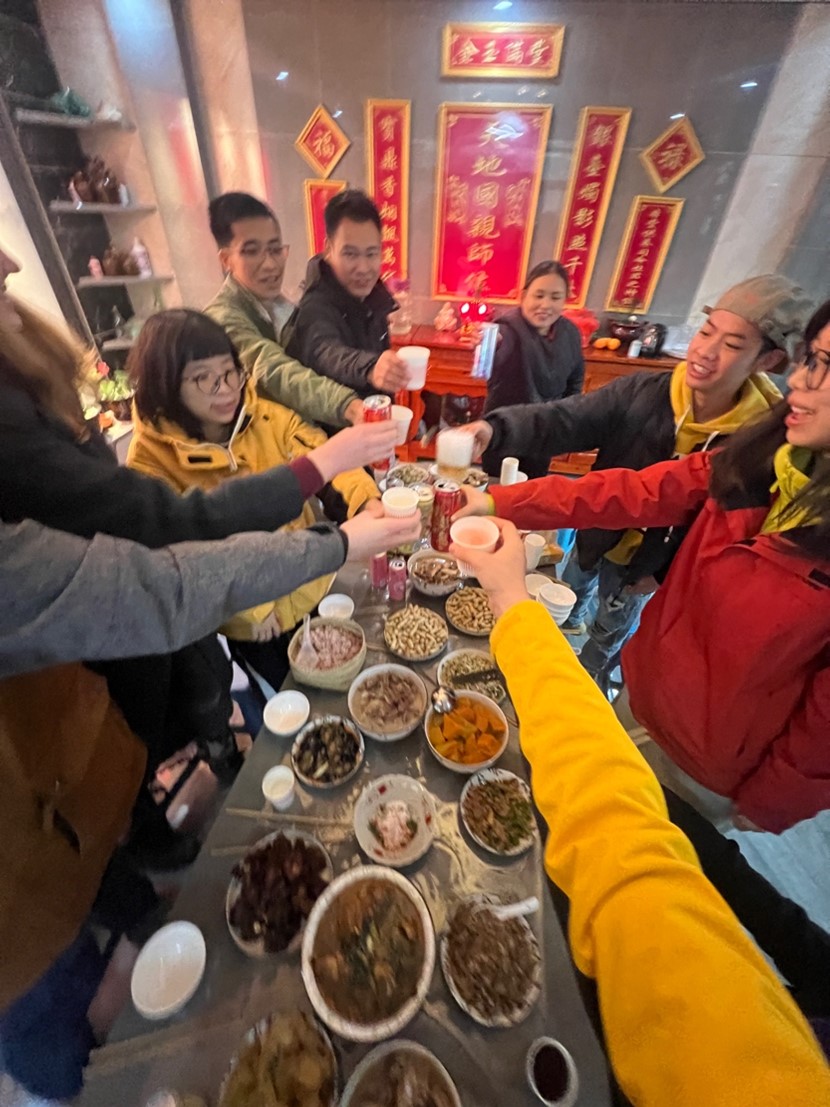
One of my biggest fears about China was that I wouldn’t like the Chinese food. Upon my arrival, I wasn’t impressed by Nanjing’s specialties (the first thing I ate was duck blood soup 鸭血粉丝汤). However, as time passed, I found many dishes that I enjoyed, such as malatang 麻辣烫 (a soup where you choose the ingredients from which the soup is freshly made) or lanzhou lamian 兰州拉面 (noodles from Gansu, the dish and the shop have the same name, and it was always fascinating to see the chef ‘pull’ the noodles live). Also, my Chinese friends always knew where to find delicious food, and as I didn’t want to get angry, I tried a few things with them that I probably wouldn’t have tried on my own. When I asked them what the food was, I mostly got the answer haochi 好吃 (delicious) anyway. These included brains or pork skin.
The choice of food in China is huge. At the end of my year, for example, I still hadn’t tried all the dishes in the canteen because there were about seven different stalls in our four canteens, where you could order 20 different dishes.
At the beginning of my time in China, I ate out a lot or went to the canteen. Over time, however, I started buying bread for breakfast or dinner and cooking in the dormitory kitchen like some of my fellow students who either didn’t like the local food, had religious reasons, or simply wanted to cook their food again. Compared to my Swiss colleagues in other cities, I was lucky that Nanjing is home to quite a few Korean companies, so there are also many branches of Paris Baguette in the city, whose range includes more than just the usual sweet and soft bread. I was also quite surprised at first that you had to get all the kitchen tools yourself in terms of cooking, and not even a hob was provided.
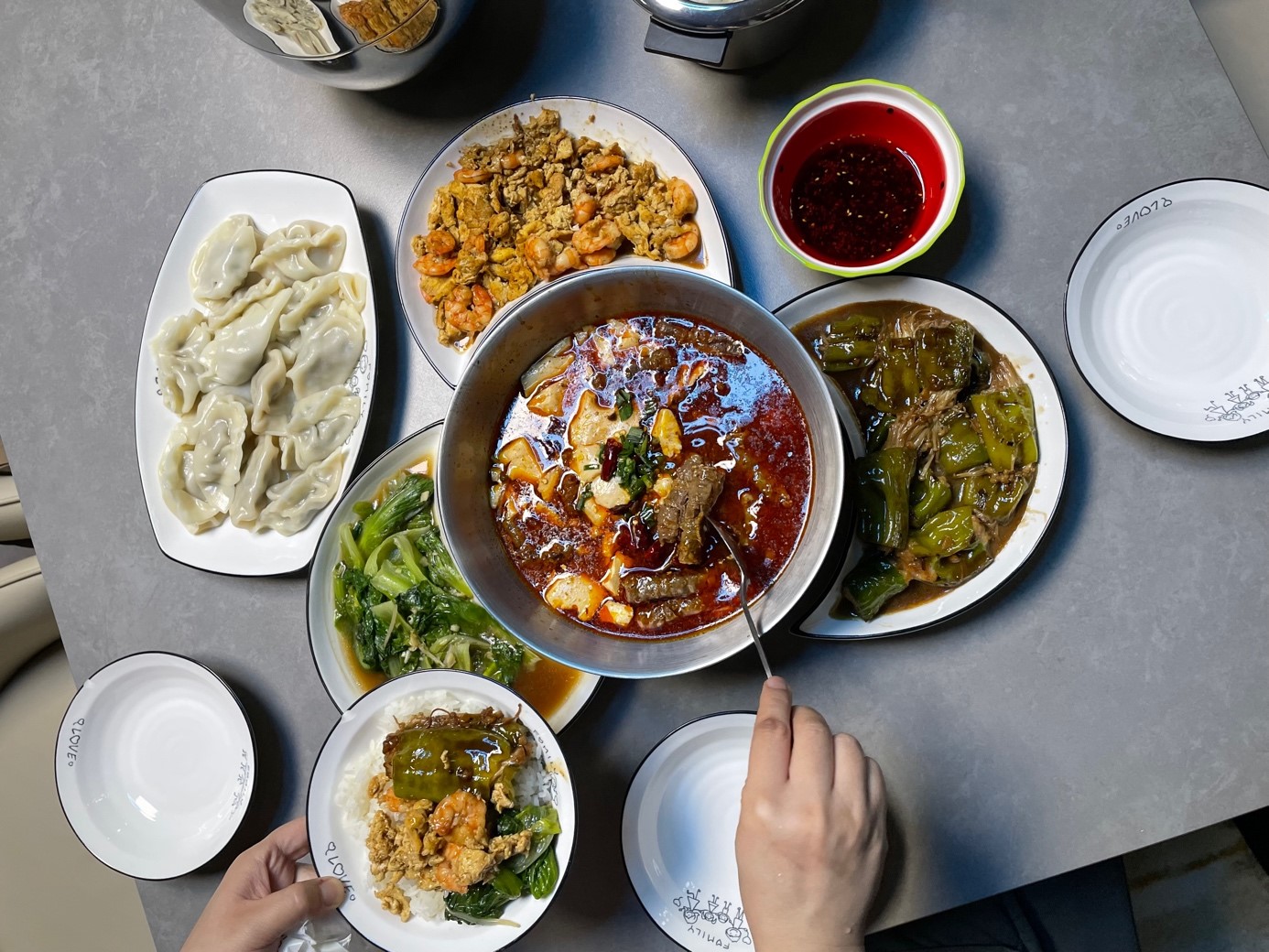
When I look back on my time in China, I am very grateful for all my experiences and the people I met. Especially after my return to Switzerland, I realized that there are two different worlds somewhere and how valuable this insight into a different culture was. The period of one year was very suitable for arriving in the country and really immersing myself in the language without having to think about going home again.
Finally, I would like to encourage every exchange student to take every opportunity to practice Chinese in the country without hesitation, especially as the response is usually very positive, and to try not to get stuck in the international environment alone, which is admittedly always very exciting.
Marissa Bortlik